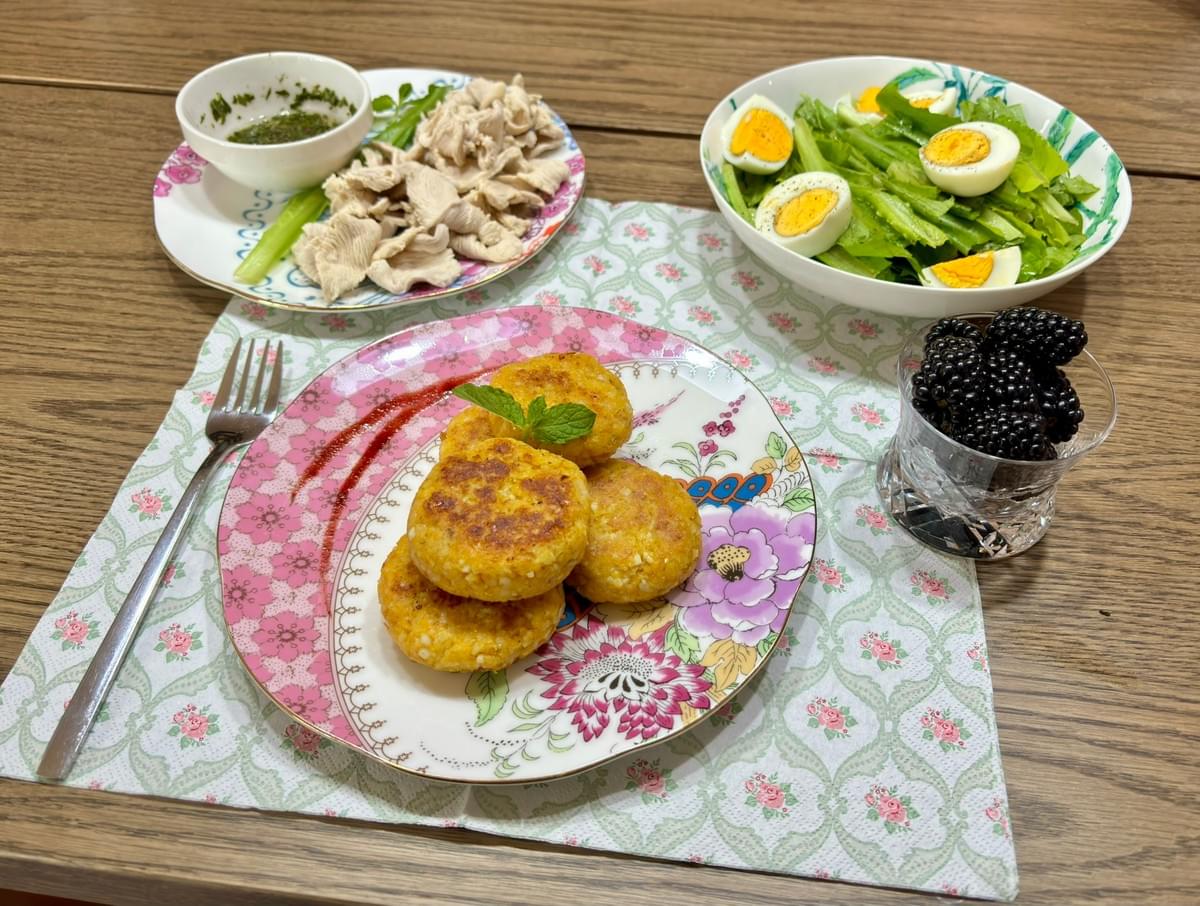
Today's Menu:
- Scallop dish
- Raw sauce with boiled chicken
- Salad & blackberries
Background:
In 270 BCE, the former Spartan colony of Tarentum, then one of the Mediterranean's most important commercial centers, was conquered by Rome. After the extension of Via Appia, Tarentum's trade declined.
What goods were traded in Tarentum? According to Horace's Satires (Book 2), the poet mentions in a letter to his friend Catius: "Gentle Tarentum prides itself on its large scallops."
How did Romans cook scallops? Apicius, a chef during Emperor Tiberius's reign, recorded a scallop recipe in his cookbook (Book 2, [46]):
- Boil scallops
- Chop the meat
- Mix with boiled wheat (I used breadcrumbs instead), add eggs, and season with pepper
- Pan-fry and coat with fish sauce
Horace notes that seafood dishes in his time were often eaten to "aid digestion," as many wealthy Romans suffered from stomach problems.
For better health and dining experience, Horace offers two interesting suggestions:
i. "If guests arrive unexpectedly at night and you're unprepared, to prevent tough chicken, soak it in unfermented Falernian wine before cooking to tenderize."
I tried Apicius' method (Book 6 [235]) of marinating chicken in wine before boiling. While it didn't make the meat much softer, it added a nice grape aroma. The boiled chicken was quite bland, so I made a "Raw Sauce for Boiled Chicken" with mint, vinegar and olive oil as suggested in the cookbook - quite unique!
ii. "If you want to stay healthy in summer, end your lunch with special blackberries."
I don't quite understand why, but blackberries are sweet anyway.
That's it for my Roman meal - time to do the dishes! Valete! (Goodbye!)
